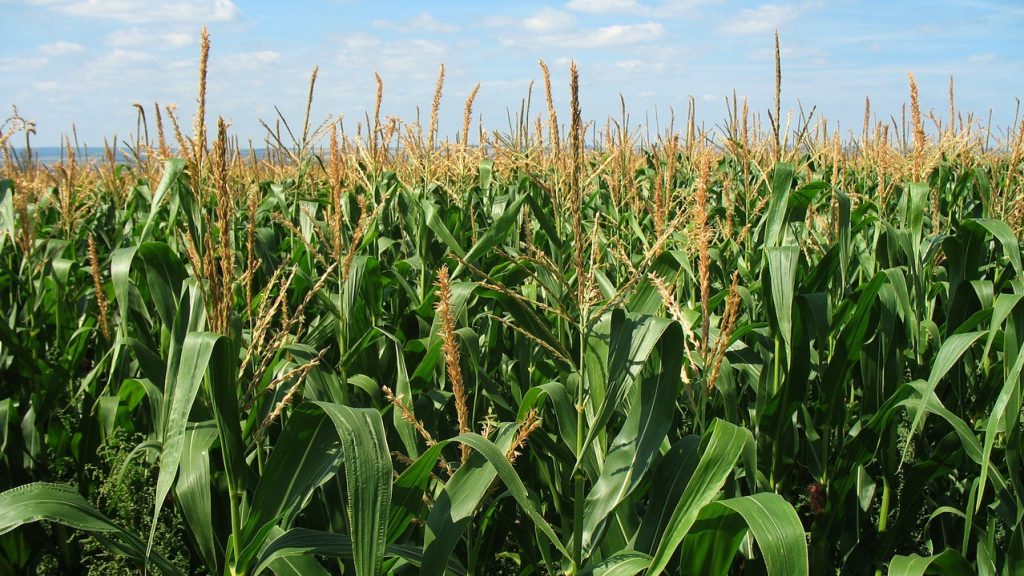Update: New Pest & Disease Records (02 May 12)
We’ve selected a few of the latest new geographic, host and species records for plant pests and diseases from CAB Abstracts. Records this fortnight include the blight disease, Phytophthora, reported for the first time in Lithuania; the first record of blackfly on mango in India; and a new species of Lymantria moth in China.
Plant-bacteria relationships a-maize scientists
Many of us have seen the adverts trying to convince us that there are ‘good bacteria’ that we should be making the most of in yogurty, pro-biotic drinks to help keep our guts healthy. Now it turns out that plants like maize are already one step ahead of us – not only making the most…
Aphids Run Scared from GM Wheat
Genetically Modified wheat, gifted with the ability to fight off plant pest attacks, is being grown in England. In a situation similar to the film The Happening, wheat crops are now able to defend themselves against aphids. In the barely-believable movie, plants gained the ability to release chemicals that affected people’s behaviour in order to…
Update: Plant Health News (25 Apr 12)
Here’s a taste of some of the latest stories about plant health, including the development of a new scab-resistant apple, how temperature and rainfall affect crop pest and disease interactions, and the Tanzanian research hoping to combat coconut troubles. Click on the link to read more of the latest plant health news!
Mining technology can help find nutritional crop varieties
Farmers face difficult challenges in deciding which crop variety to continue growing. They need to choose crop varieties that have a high likelihood of survival and that will have a high yield. The communities that these farmers provide crops for also have needs. Their need is focused on the access to nutritious crops that contain…
Plantwise launched in Uganda
Plantwise has officially been launched in Uganda as of 16th April 2012. The ceremony was held at Nkokonjeru in Buikwe district central Uganda and was attended by over 300 people made up of Plantwise plant doctors local dignitaries and farmers who have been helped by the local plant clinic. The honoured guests were the local…
Update: New Pest & Disease Records (19 Apr 12)
We’ve selected a few of the latest new geographic, host and species records for plant pests and diseases from CAB Abstracts. Records this fortnight include target leaf spot (Corynespora) appearing for the first time in India, new records of Colletotrichum species on apple in Uruguay, and the first appearance of Bidens mottle virus in Taiwan.
Tanzanian farmers keeping peckish elephants at bay
It’s good news for the savanna ecosystem that the elephant population of East Africa has increased in recent years, but bad news for farmers whose crops are being devoured by these giant pests. Wildlife services’ successful anti-poaching campaigns and an increased designation of land to national parks has helped elephant population numbers to recover. However,…
Update: Plant Health News (13 Apr 2012)
Here’s a taste of some of the latest stories about plant health, including the launch of the USDA’s ‘Save Our Citrus’ app, how disease-resistant bananas have proven to be a success in Jamaica, and a video of aphids reacting to a pheromone alarm. Click on the link to read more of the latest plant health…
Which is the most important plant-pathogenic fungus?
A survey by the journal, Molecular Plant Pathology, had 495 responses from international fungal pathologists on what they thought the most scientifically and economically important fungal plant pathogens were. Several of the ‘top 10’ fungi from these results are those that infect cereal crops, which isn’t surprising as cereals such as wheat and rice are…


